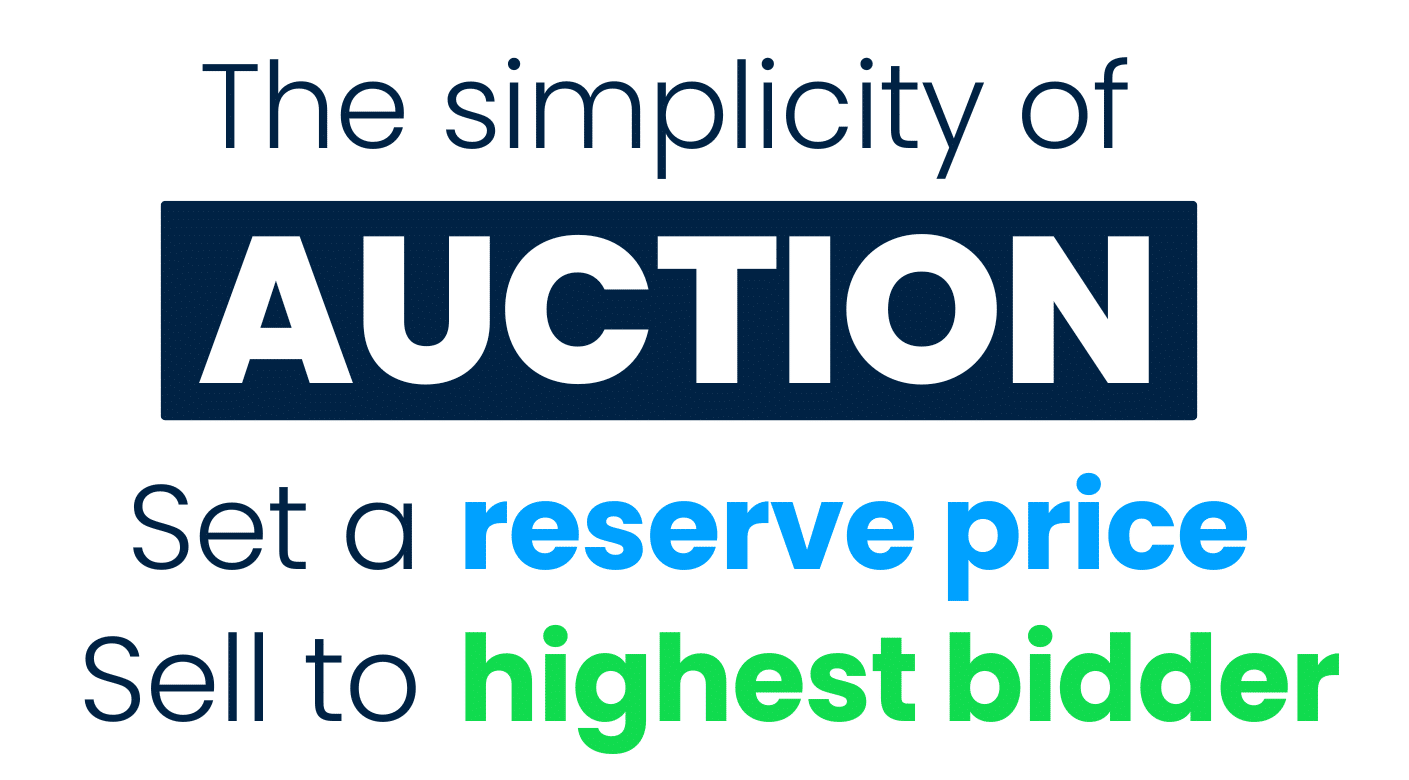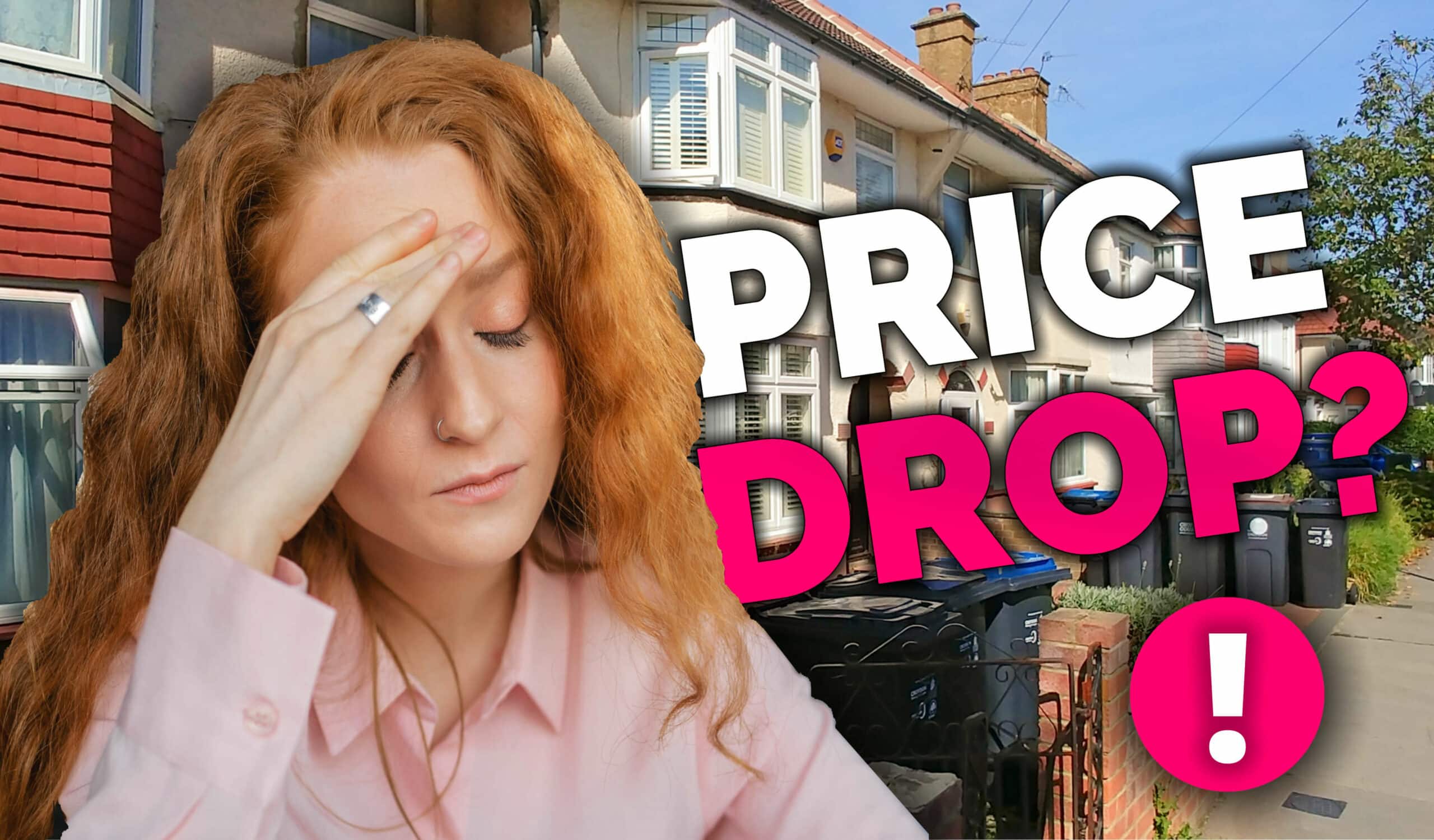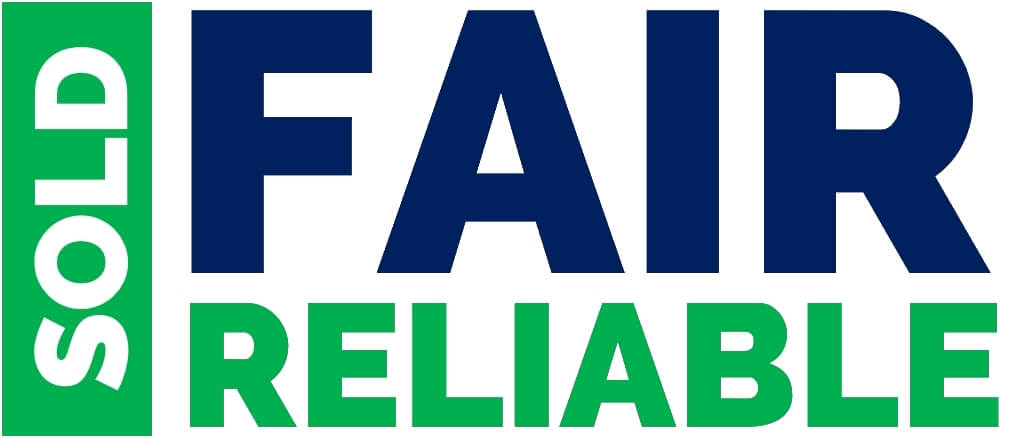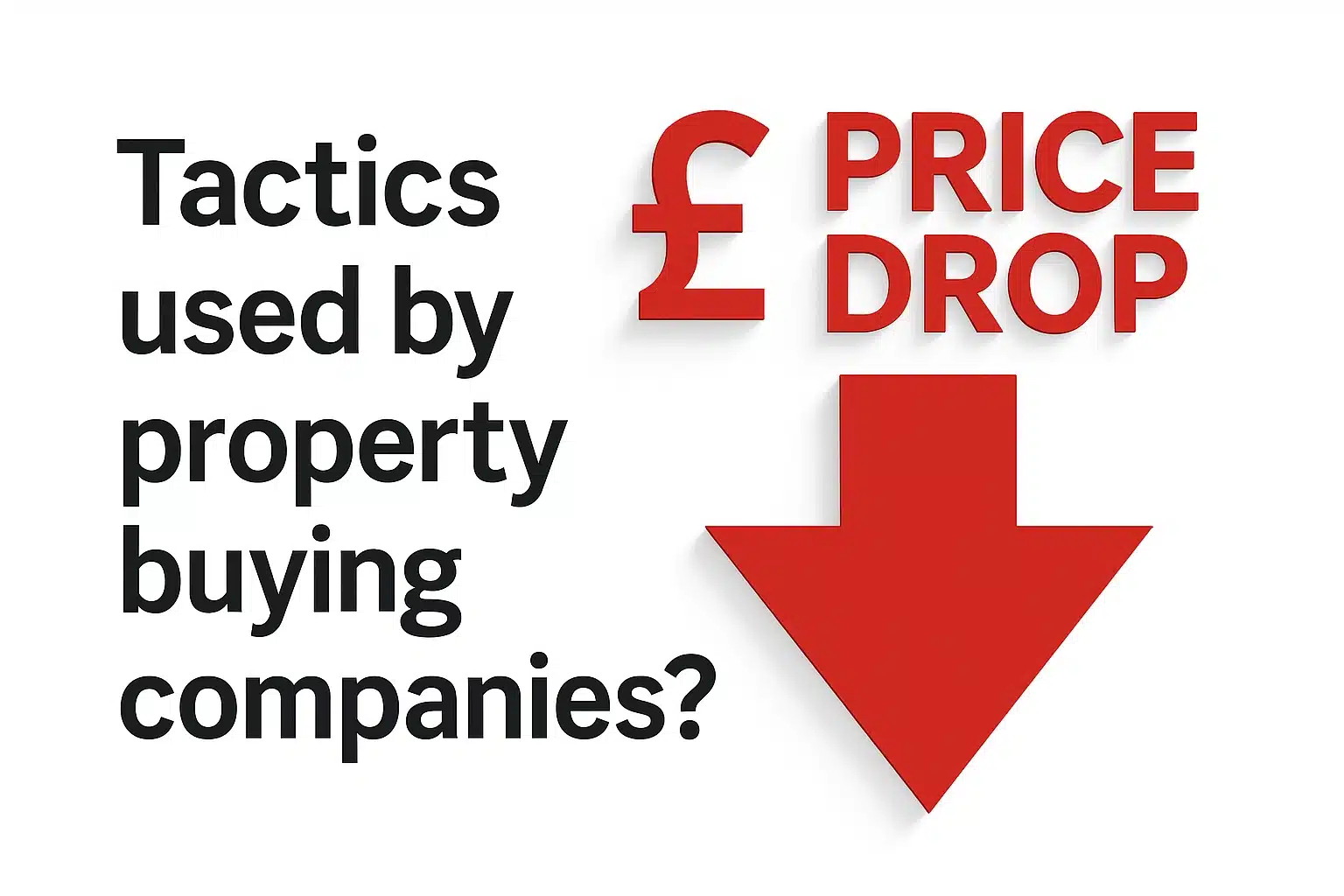Sell by auction or use a property buying company?
- Cost effective
No upfront fee & sell for free options - Quick
Sell your property in as little as 28 days - Secure & reliable
Legally binding sale on auction day - Fair & transparent
Sold to the highest bidder
For your peace of mind we are a member of The Property Ombudsman


Selling by auction is quick and easy. Request a no-obligation auction sale estimate for your house or flat.
- ✔ Reliable
- ✔ Fast
- ✔ Secure
Interested to learn more about the easy and efficient process of selling your property by auction?
Talk to our team on 0800 862 0206
Sell to the highest bidder at auction?
Or negotiate with a home buying company?
Property buying is big business! With hundreds of companies operating across the UK. While they can be useful in limited situations – such as when a seller isn’t chain-free – they’re not always the best route. In many cases, selling at auction can achieve a faster sale and a better price, so it’s worth carefully considering all your options before committing.
UPDATE: 2025
Concerns Over ‘Quick House Sale’ Companies
We have received a significant number of reports from property owners who have encountered difficulties when attempting to sell through companies offering so-called “quick house sale” solutions.
In many of these cases, sellers were initially presented with offers that appeared favourable. However, it has become clear that these offers are frequently subject to substantial reduction at the final stage of the process, leaving sellers with little choice but to proceed on unfavourable terms. This practice has been reported most commonly in relation to properties requiring refurbishment or modernisation.
We have also been made aware of companies promoting secondary services, whereby properties are marketed to their “pre-approved buyers” at a fixed or guaranteed price. Despite the assurances given, there is often no genuine guarantee of a sale. In effect, such arrangements closely mirror traditional estate agency methods – often at greater cost – without delivering additional certainty or protection to the seller.
These reports underline the risks faced by sellers when relying on “quick sale” arrangements. By contrast, the auction process provides a defined legal framework: a reserve price safeguards against under-selling, timescales are fixed in advance, and once the hammer falls the contract is binding. This structure offers sellers a level of clarity and protection that is not always present in other methods of sale.
This article is designed to support property sellers looking to exit an agreement with a property buying company, as well as those considering using such services – commonly referred to as “quick house sale” or “we buy any home” companies. The article highlights some of the hidden risks of selling to property buying companies – and why auction might be a smarter move
Updated by: Mark Grantham on 26th September 2025

Selling by auction is easy
With no upfront costs, and sell for free options available, auction is the ideal route for property sellers looking for a reliable and hassle-free sale at the best price.
Selling direct to a company can be useful in situations where a property owner requires a quick sale, or when selling through a conventional method hasn’t worked out. However, there are significant risks. Apart from standard consumer protection law and voluntary membership to ombudsman schemes, the “quick house sale” industry is not regulated.
It’s well known that some buying companies often try to negotiate their offer late in the process, and some companies don’t even buy the property themselves, but instead attempt to broker the sale onto another buyer. This uncertainty isn’t helpful for property sellers when they’re in need of a reliable sale.
🔲 Property buying is not a regulated activity
Some companies choose to voluntarily join ombudsman schemes. However, beyond standard consumer protection laws, the industry lacks specific regulation. If a property buying company claims to be ‘regulated,’ it could be considered misleading.
To help property sellers navigate their negotiations with property buying companies, we’ve provided some useful tips on what to look out for, and how to identify a genuine and trustworthy buying company. We also look at why it’s worthwhile considering selling by auction, as a good and reliable alternative to a property buying company.
🔲 Looking for a reliable property sale?
How do profit-focused banks, asset managers, and other property professionals sell? They don’t go to property-buying companies – they sell at auction. And so can you.
Be careful if you’re asked to sign anything
When dealing with a genuine property buying company, you shouldn’t have to sign any contracts or agreements, apart from those issued to you by your own solicitor. Be wary of schemes involving option agreements, assisted sales, delayed completion, or any type of exclusivity period. If a property buyer is asking you to sign ANYTHING, be careful!
If a company asks you to sign anything, it might be a clue that they are not actually buying the property direct. Instead, they might be asking for an “exclusivity period” of perhaps 8 to 12 weeks which gives them time to trade the property on to someone else.
Most good home buying companies will not ask you to sign anything at all.
Homebuying is not a regulated activity
If a property buying company claims they are regulated, the warning bells should be ringing. Unlike financial or legal services, the property sector has no specific regulation for homebuying services, apart from standard consumer protection law. Any company can set up to become a property buyer.
Is the company a member of the TPO?
It’s worthwhile checking if the company you’re dealing with is a member of The Property Ombudsman and specifically signed up to the Code of Practice for Residential Buying Companies.
At a minimum, any company operating in the home-buying sector should choose to be a member of a redress or ombudsman service. However, this is a basic requirement and does not necessarily indicate that the property buying company is a reputable operator. The Property Ombudsman will not necessarily be able to uphold a complaint against a last minute price reduction, as property law in England & Wales perfectly allows the buyer to do that!
⚠
Selling a property in need of improvement?
Be especially cautious when selling a property in need of improvement to a property buying company – while their offers may seem attractive at first, some of the tactics they use can lead to disappointing or even costly outcomes for the seller.
Option to use your own solicitor?
Always be cautious of a homebuying company that offers you their preferred solicitor. Our common sense advice is to use your own solicitor – it will be just as quick. Think very carefully before accepting legal advice (especially if it’s free) from any solicitor other than your own.
Finding a solicitor is easy. Use the Law Society website to find a local solicitor:
England and Wales – find a solicitor on the Law Society website.
Scotland – find a solicitor on the Law Society of Scotland website.
Northern Ireland – find a solicitor on the Law Society of Northern Ireland website.
Proven track record?
Whilst there is no issue using the services of a newly formed company. Just like any service you use, there can be benefits to using a company that’s experienced in what they do. There’s no harm carrying out some research on the company and use Companies House to see how long the company has been in business.
Insist the buyer carries out their survey early in the process
Some property buying companies use the tactic of significantly reducing their offer at the last minute, based on the results of a survey or some other findings. Not all companies will require a survey. But if they do, you should request they instruct a surveyor at the same time as solicitors are instructed.
Unfortunately, the law in England and Wales means there is nothing legally binding about a buyers offer until exchange of contracts. The buyer can back out of their purchase or reduce their offer at any point before exchange of contracts. The seller can back out of the sale too, unless they have signed something to say otherwise. This is why we always advise sellers not to sign anything unless it’s been issued by your own solicitor.
Even if a property buying company has carried out an inspection of your property already, they might wait until late in the process to carry out a “formal valuation” or survey. The valuation will usually be carried out by a RICS surveyor at the cost of the buyer.
The “formal valuation” is often used as a reason to reduce the offer, based on the findings of the survey.
IMPORTANT! You don’t have to accept a reduced offer at any point before exchange of contracts. If the offer from a property buying company is reduced, check with your solicitor about your options.
A fair business won’t hide the survey report from you, there’s no reason why you shouldn’t see a copy of the survey report.
Is the offer amount genuine?
If you’re comparing offers from home buying companies, be aware that some companies make tempting offers to start with and reduce their offer the day before exchange of contracts. Homebuyer companies are known to employ this tactic to outbid the competition and win the business / get their foot in the door.
A genuine offer from a homebuying company will always be below market value. A genuine property buying company will typically offer no more than 70% to 80% of market value. For example, if market value was £100,000 the offer from a property buying company is likely to be no more than £70,000 to £80,000. If the initial offer you receive is any more than that, it might be too good to be true.
If you’re not sure about the value of your property, it’s easy enough to get a rough idea for yourself by looking at what prices similar properties have sold for in the area, or what prices properties are being advertised for on Rightmove and Zoopla – bear on mind the asking prices suggested by estate agents might be higher than market value.
Misleading advertising tells you everything you need to know!
The quick house sale market is very competitive. To stand out from the crowd, some property buying companies advertise their services in a way that might be described as misleading.
If you have clicked an online advert, you might have only done so because the company’s advert offered a very compelling service. For example, if you searched “how to sell my house fast”, you might see an advert appear with the following headline:
“We pay 100% cash in 14 to 28 days”.
The catchy message encourages you click the link and submit your contact details to the property buying company. By the time you’ve engaged with the property buying company, it’s too late to check if the advert you clicked was really what you thought it to be.
For a company to state they “pay 100%” is quite confusing. The average person might think this means the company is paying full market value for their property in as little as 14 to 28 days. The advertiser will argue that they don’t actually pay 100% of market value, but whatever amount they do offer will be 100% cash.
If a company is making misleading claims in their advertising, how trustworthy are they going to be when it comes to buying your property?
Once you’ve clicked on the advert, it’s unlikely you will go back to question what you clicked on. Those advertising words are gone and never to be seen again?
Fortunately, there is a way to check on the adverts that a homebuyer company uses, so you can take the time to consider if you really want to do business with them, or in hindsight you feel you might be better off dealing with a more straightforward company.
For example, if you found the advert on Google you can click the link below and see the adverts the property company has been displaying.
Google Ads – check an advertisers message:
https://adstransparency.google.com/?region=GB
This is a really useful service provided by Google Ads. And other online platforms are improving the transparency of their advertisers too. It’s worthwhile checking whatever platform you used (or regularly use) to see in hindsight, if the advert you clicked was fair, or misleading.
Is the company really buying direct?
It is quite common for property buying companies to broker the sale on to other buyers, in which case the investor takes a cut of the sale. And there is no guarantee of a quick sale, or any sale at all! Ask for confirmation in writing that the prospective buyer is buying direct. If they cannot provide written confirmation, assume they are a broker.
Genuine cash buyer?
Glossy brochures, membership to a redress scheme and a good online presence doesn’t stop a profit-driven company from increasing their margin by whatever means they can. And reducing the offer amount late in the process is a common and perfectly legal way of doing that.
Some property buying companies make high initial offers, just to outbid the competition. If a property buying company is employing this tactic, it’s almost certain they will reduce their offer late in the process.
Although in some cases a price reduction might be justified, some companies (even the well established ones) make a habit of haggling on price at the eleventh hour, sometimes the day before exchange of contracts. You don’t have to accept a reduced offer, but you might find you’re limited on time and options when the reduced offer is made at the last minute.
Even if time is against you, think carefully before accepting a reduced offer. This is an unfair tactic used by many property buying companies.
Requesting an upfront deposit from a property buying company (which is only refunded on completion of sale at the agreed price) can be one way of filtering the good property buying companies, from the not so good.

Under the rules of an auction sale, price reductions are not allowed
Insist all correspondence is in writing
Don’t necessarily rely on anything said over the phone. Ask the property buying company to confirm any important points by email after your phone conversation with them. You may wish to forward the emails on to your solicitor (or a friend or family member who is helping with the sale) for review, or just for keeping as a record of what’s been agreed.
Even if you have received an offer from a home buyer company, there is no guarantee of a legally binding sale.
Consider alternative options
Particular caution when selling a property in need of improvement
Selling a property that needs work – whether it’s unmodernised, run-down, or a classic “doer-upper” – can be a daunting task. Many homeowners are tempted by property buying companies offering quick sales and attractive headline prices. But what often seems like a fast and convenient option can come with some serious pitfalls.
One common tactic used by some property buying companies is to make a high initial offer, especially for properties in need of improvement. This high offer helps them stand out from the competition and get their foot in the door. However, as the sale progresses – often at the very last stages – sellers are hit with a significant price drop.
Why? The company suddenly claims that the property requires far more work than originally anticipated, despite having had the chance to assess its condition early on. The timing of this “revised offer” is no accident – by this point, the seller is often emotionally and financially invested in the sale and feels pressured to accept the lower price.
It’s a well-known tactic in the industry and unfortunately, it leaves many sellers feeling misled and frustrated.
So what’s the alternative?
For properties that need updating or renovation, selling through auction is often a much better route. Auctions are transparent, competitive, and can achieve strong results – especially for homes that appeal to investors, developers, and cash buyers actively looking for fixer-uppers. With an auction, there’s no risk of last-minute renegotiation. Once the hammer falls, the buyer is legally committed, and the sale typically completes within 28 days.
If you’re thinking of selling a property in need of improvement, it’s worth exploring your options – and going to auction might just save you from a lot of stress and disappointment.

Thinking of selling to a property buying company? It’s important to exercise extra caution when the property is in need of improvement
Free Auction Valuation
Auction offers a quick, reliable and transparent method of sale. Find out more by requesting a free auction valuation. In some cases we may need a few more details about your property before providing a free and no-obligation estimate.
Selling by auction makes a refreshing change, there are no protracted negotiations or sales falling through. With an unconditional auction sale the property is sold to the highest bidder and the sale is legally binding. There is no opportunity for the buyer to reduce their offer or back out of the sale.
Contact us for guidance on selling your home by auction. Request a free pre-auction appraisal – we’ll be happy to help.
Money Helper – Quick House Sales
Money Helper offers impartial guidance that’s backed by government. This guide offers tips and alternatives to selling to home buying companies.
Guide to selling a house by auction
Explains the stages involved in an auction sale. With information about auction sale costs, timescales and the process for selling at auction.
Carry out improvements before selling?
When selling a property in need of improvement, should I spend money on refurbishment works? Or leave the property as is, and let the new owner take care of improvements?
Poor condition property: Auction VS Estate Agent
The private treaty method of sale isn’t suited to some types of property – it’s inefficient and potentially open to abuse.
Selling a house in poor condition
The rules of an auction sale mean that buyers must compete to purchase a property. And the highest bidders offer is legally binding – there is no opportunity for them to reduce their offer.
Check before you sign
Before committing to sell your property at auction, check to see if the contract is for an unconditional sale or a conditional sale.











